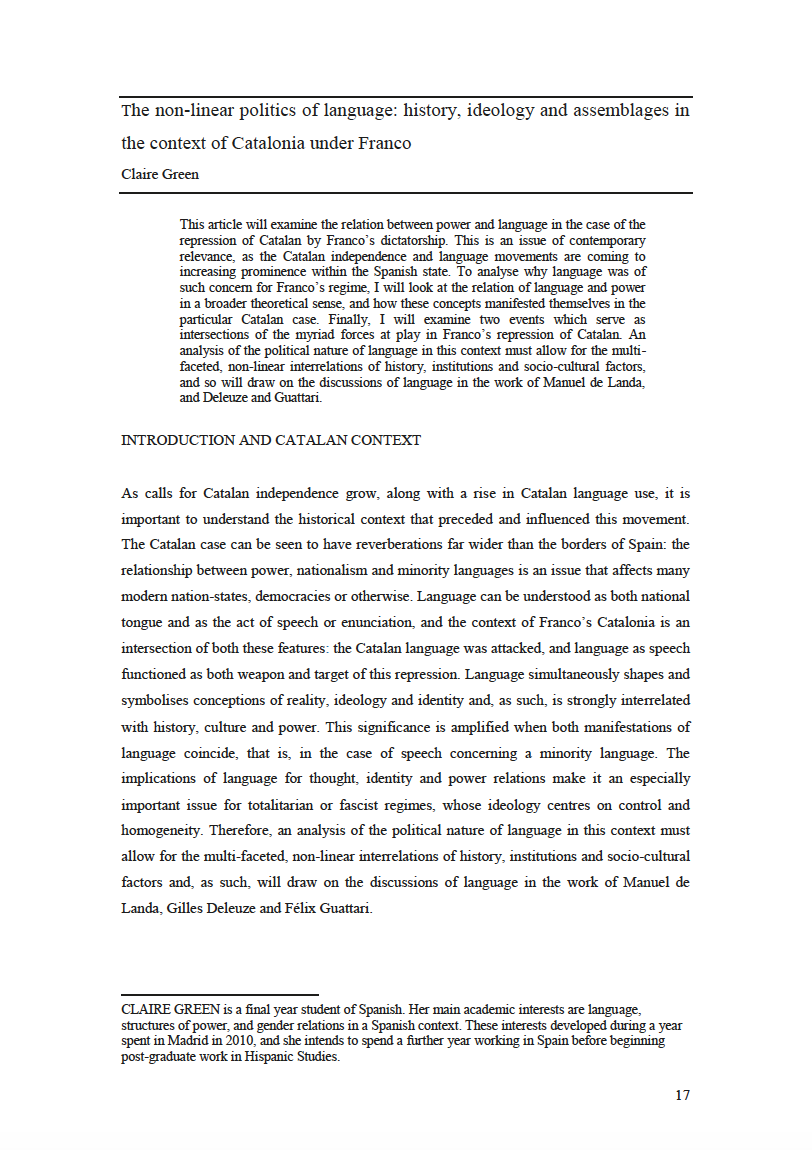The non-linear politics of language
history, ideology and assemblages in the context of Catalonia under Franco
DOI:
https://doi.org/10.36399/GroundingsUG.6.225Keywords:
Franco, Catalonia, Catalan, Language, History, Ideology, Repression, De Landa, Deleuze, GuattariAbstract
This article will examine the relation between power and language in the case of the repression of Catalan by Franco’s dictatorship. This is an issue of contemporary relevance, as the Catalan independence and language movements are coming to increasing prominence within the Spanish state. To analyse why language was of such concern for Franco’s regime, I will look at the relation of language and power in a broader theoretical sense, and how these concepts manifested themselves in the particular Catalan case. Finally, I will examine two events which serve as intersections of the myriad forces at play in Franco’s repression of Catalan. An analysis of the political nature of language in this context must allow for the multifaceted, non-linear interrelations of history, institutions and socio-cultural factors, and so will draw on the discussions of language in the work of Manuel de Landa, and Deleuze and Guattari.

Downloads
Published
Issue
Section
License
Copyright (c) 2013 Claire Green

This work is licensed under a Creative Commons Attribution 4.0 International License.
The CC BY 4.0 license is a Creative Commons license. This is a non-copyleft free license that is good for art and entertainment works, and educational works. It is compatible with all versions of the GNU GPL; however, like all CC licenses, it should not be used on software. People are free to: Share — copy and redistribute the material in any medium or format; Adapt — remix, transform, and build upon the material for any purpose, even commercially. The licensor cannot revoke these freedoms as long as you follow the license terms. But they must conform to the following terms: Attribution — You must give appropriate credit, provide a link to the license, and indicate if changes were made. You may do so in any reasonable manner, but not in any way that suggests the licensor endorses you or your use. No additional restrictions — You may not apply legal terms or technological measures that legally restrict others from doing anything the license permits.
Please check individual article PDF copies to see if any additional restrictions apply.







